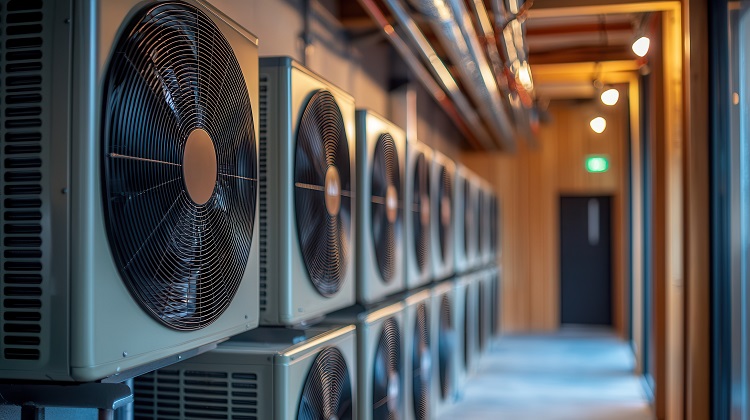Every business space has its own unique needs when it comes to air, temperature, and humidity. Many companies rely on basic systems, but these don’t always meet the demands of more complex environments. When safety, comfort, or equipment performance is at stake, a standard setup often isn’t enough. This is where custom-built environmental control systems come in. They’re made to fit specific conditions, which makes workplaces safer, more efficient, and easier to manage.
Table of Contents
What Environmental Control Systems
Environmental control systems help manage the conditions inside a building. They regulate things like temperature, humidity, airflow, and sometimes air pressure. In a small office, a regular HVAC system might work fine. But certain industries require more control.
For example, a research lab must keep its rooms at specific temperatures and moisture levels. A food factory needs clean air to prevent contamination. These situations need more than a basic system—they need a solution built around their exact needs.
If your facility has strict climate requirements, now may be the time to consider installing a custom environmental control unit. It’s a smart way to maintain consistent conditions and avoid costly disruptions.
Why Standard Systems Aren’t Enough
Off-the-shelf systems are made to work in general situations. They might do a good job in a home or small office, but they struggle in spaces with special requirements. When the system isn’t a good match for the space, several problems can occur:
- Uneven temperatures in different rooms
- Poor airflow that affects equipment
- High energy bills due to inefficiency
Picture a warehouse full of heat-sensitive products. A regular system might keep some areas cool while leaving others too warm. That kind of setup can lead to damaged goods and unhappy clients. A custom system prevents that by keeping every area in the right condition.
How Custom Systems Make a Difference
Custom-built systems are made for the exact space where they’ll be used. Designers study the building layout, the type of work done there, and what kind of control the business needs. Then, they create a system that handles those needs without wasting energy or space.
For instance, a printing company might need special airflow to keep paper and ink from reacting to moisture. A custom system can include fans, filters, and sensors placed in the right spots to solve that problem. Every piece is selected based on how the business works each day.
Energy Use and Long-Term Costs
Spending money on a custom system may seem like a big step at first. But over time, it often saves money. Because the system is designed for the space, it runs more efficiently. It doesn’t waste power cooling empty rooms or fighting airflow problems.
Lower energy use means lower monthly bills. It also reduces wear and tear on equipment. Machines that run in the right conditions last longer and break down less often. In some businesses, avoiding downtime or product loss can save thousands of dollars.
Staying Within Industry Rules
Many industries have rules about cleanliness, climate, and air quality control. Health and safety organizations often inspect facilities to make sure they meet these standards. Falling short can lead to fines, lost business, or even lawsuits.
Custom systems help companies follow these rules. For example, a medical supply factory might need air that’s free from dust and bacteria. A tailored system can use filters, sealed rooms, and alarms that signal when something goes wrong. These features help keep workers and products safe.
Ready for Future Changes
Business needs change over time. A company might add more space, change its products, or upgrade equipment. A custom system can be designed to handle these changes without starting from scratch.
For example, if a warehouse plans to add more storage rooms later, the control system can be built with room to grow. New zones or equipment can be added without tearing the whole system apart. That kind of flexibility makes it easier to plan ahead.
Smarter Tools for Improved Control
Many custom systems come with smart features that make them easy to manage. Digital tools can track temperature, humidity, and airflow in real time. Some systems can even make small changes automatically to keep conditions stable.
Let’s say a cooler room suddenly gets warmer because of a faulty fan. A smart control panel can notice the change and send an alert before it becomes a serious problem. This kind of early warning keeps everything running smoothly and helps avoid costly mistakes.
Conclusion
A custom-built environmental control system gives a business the exact tools it needs to stay efficient, safe, and ready for growth. It does more than keep the air clean and the temperature stable. It supports daily operations, protects equipment, and helps companies meet important rules. When a business depends on reliable conditions, a one-size-fits-all system simply won’t do. Choosing a custom setup is a smart move that brings lasting value.

